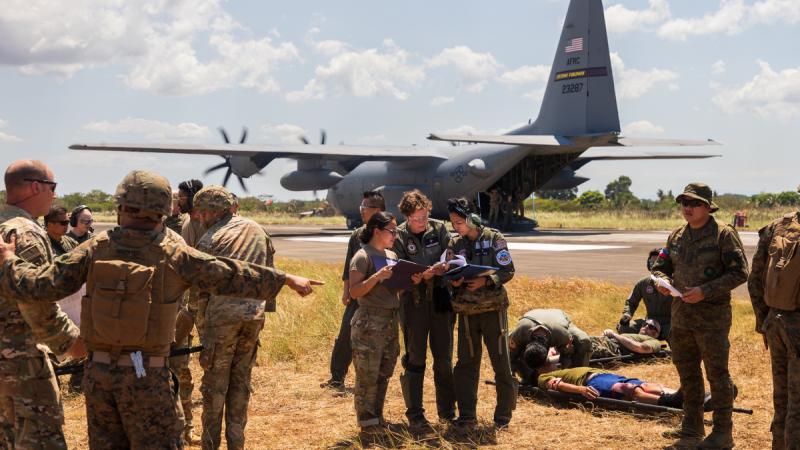European Union members must ban immigration detention of children as they prepare for implementation of the newly adopted EU Pact on Migration and Asylum, UN experts* said today.
“Detention of migrant and asylum-seeking children because of their or their parents’ migration status is never in the best interest of a child and always a violation of children’s rights. In the absence of a unified regional prohibition, EU Member States should explicitly prohibit immigration detention of children in their national legislation, and ultimately put an end to this practice for all other migrants,” the experts said. They warned that detaining adult migrants and asylum seekers should not become a practice. “Asylum seekers should not be penalised for exercising the right to seek asylum, and migration should not be criminalised,” they said.
The mandate holders called on the European Commission to develop specific guidance on the reception and care of children, focusing on measures to effectively protect the rights of both unaccompanied and accompanied migrants and asylum-seeking children under 18 years old.
“We also remain concerned about immigration detention of adults. There is a risk that, under screening and border procedures, it becomes a consistent practice at EU external borders and this would render the EU’s migration governance alarmingly regressive,” they said. States committed to use migration detention only as a measure of last resort and work towards alternatives under objective 13 of the Global Compact for Migration. “Alternatives to deprivation of liberty are not solely critical to protect people’s dignity, humanity, health and well-being, but also significantly less costly”.
Following its adoption by the European Parliament, pending endorsement by the Council of the European Union, the EU Pact on Migration and Asylum is expected to come into effect in 2026.
“We welcome the future establishment of independent mechanisms aimed at monitoring strict respect for human rights during screening and border procedures implemented at national level. Adequate safeguards must be put in place to guarantee their independence. We stand ready to assist with the prompt establishment of these mechanisms and to collaborate with them,” the experts said.
“We urge EU Member States and the Commission to integrate human rights protections at every stage of the implementation of all relevant procedures, and conduct meaningful consultations with civil society organisations.”
“All human rights should be fully respected; even in times of migration crises or large movements, certain human rights are absolute and non-derogable. These include the rights to life and to freedom from torture and ill-treatment, as well as the principle of non-refoulement,” they said. “We reiterate the States’ obligation to refrain from collective expulsions, and the necessity of conducting individual assessment of protection needs under international human rights and refugee law.”
The experts also welcomed the inclusion of anti-discrimination clauses in relevant laws of the Pact. “EU countries must take concrete measures to prevent racial profiling by immigration and law enforcement officers, especially when carrying out screenings both at borders and internally, including through the use of digital technologies. Measures must be taken to ensure effective protection of the rights of migrants and asylum seekers with disabilities, recalling the EU’s obligations under the Convention on the Rights of Persons with Disabilities.”
“We also call upon the European Union and its Member States to expand and diversify pathways for regular migration and resettlement, with a view to prevent and address risks for refugees and migrants, including human trafficking and other serious human rights violations,” the Special Rapporteurs said.






